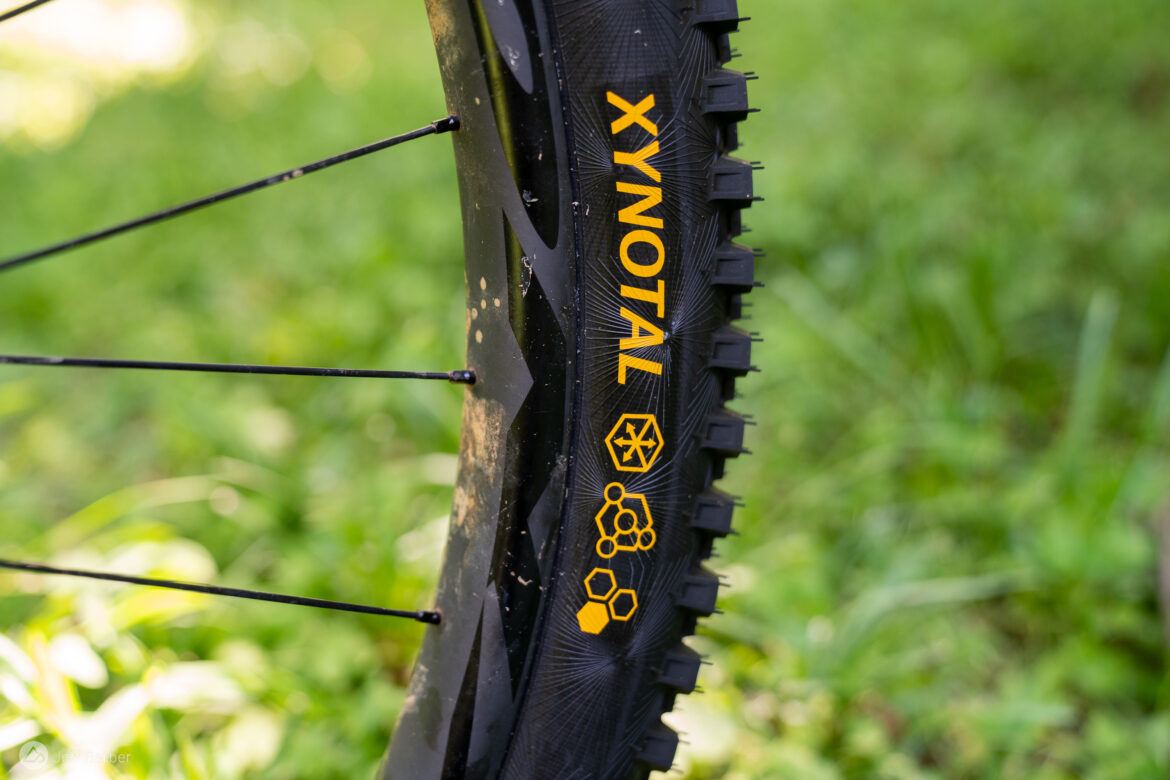
Continental Xynotal sounds like the name of a British drug. The tire business, like the pharmaceutical trade, is a global one these days, and it’s easier to trademark product names that are 100% unique. As a mountain bike tire, the Xynotal’s performance isn’t completely unique, though it generally delivers the goods.
Continental Xynotal specs
Continental offers the Xynotal in 27.5″ and 29er diameters, and in either a trail, enduro, or downhill casing. All are 2.4″ wide. I tested the 29er Continental Xynotal with the trail casing as a front tire, and my sample weighs 1080g which is about 40g heavier than claimed. Some, but not all, of that extra weight is due to dried-on sealant and dirt.
Reviewer profile height: 190cm (6’3″) weight: 75kg (165lb) testing zone: Southeast, USA
I mounted the Xynotal without tubes to a set of 32mm-wide carbon rims and easily aired them up with a regular floor pump. On 32mm rims I found the tire measures 59mm wide which translates to about 2.32in. The tire assumes a nice round profile with a good height off the rim.
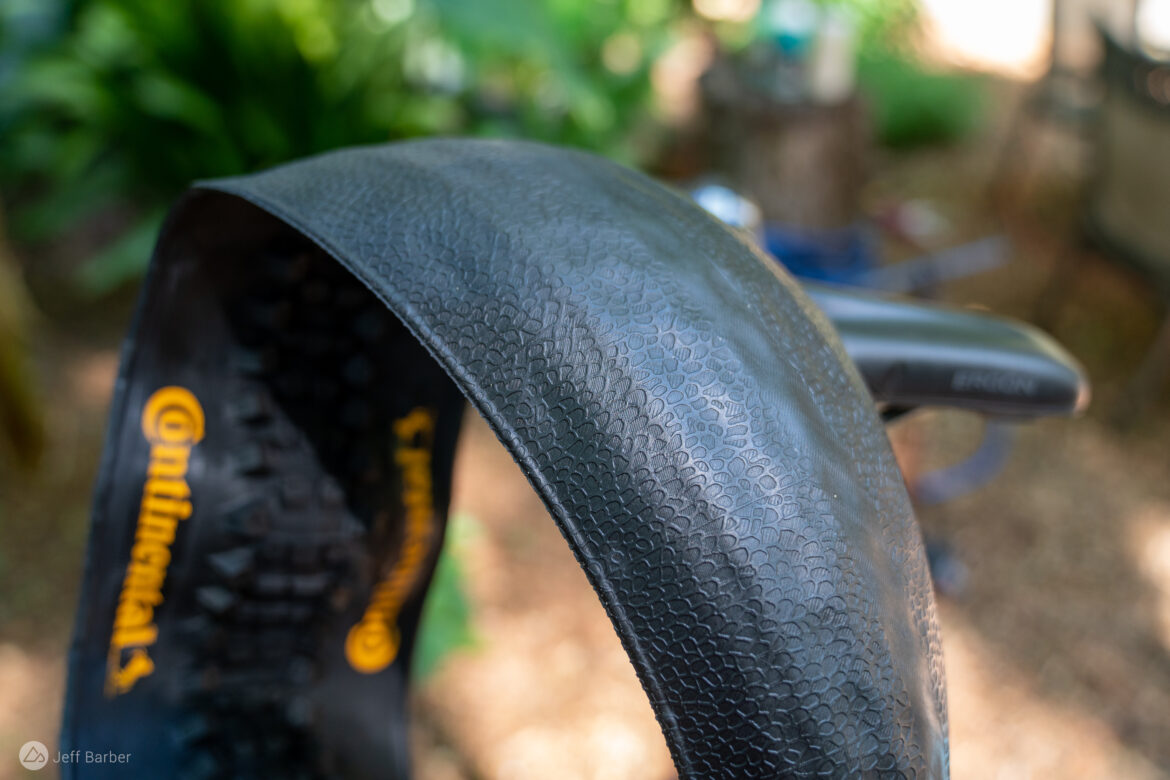
Inside the tire there’s a leopard-like texture that presumably helps sealant coat the inside of the tire. The Donnelly GJT tire I tested earlier this year features a similar, albeit inverted, pattern. It’s hard to say how or if this helps the performance of the tire.
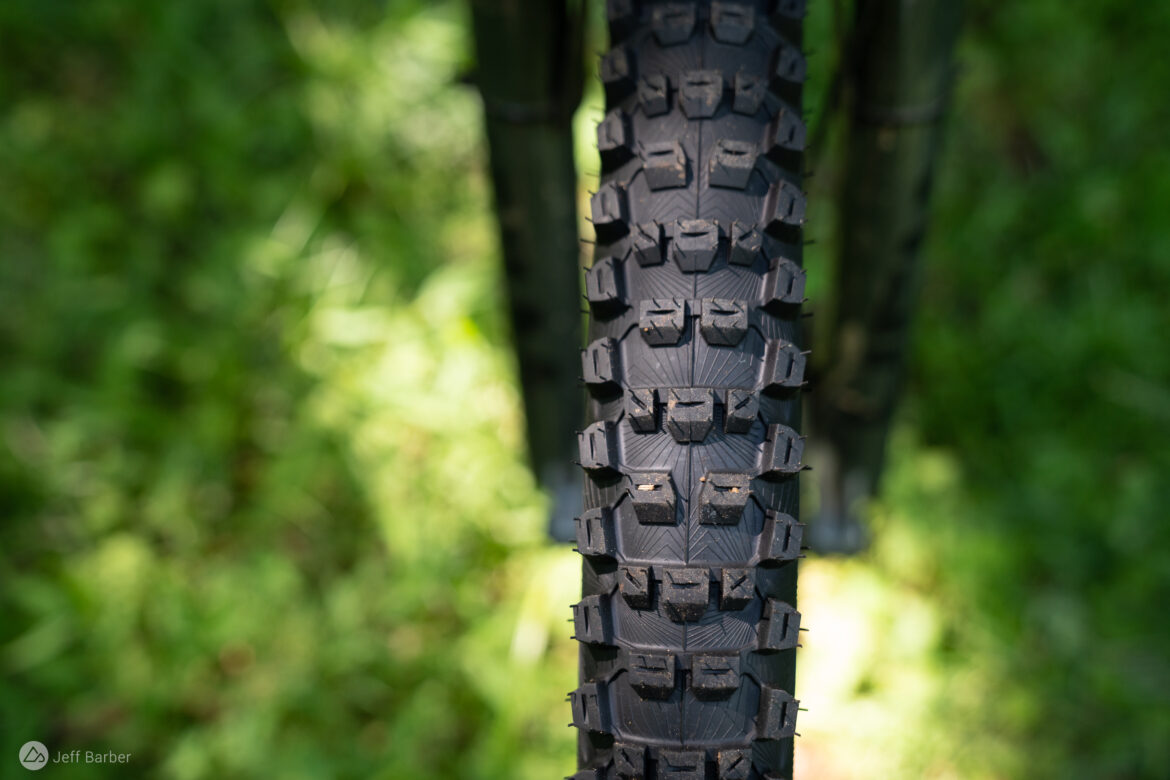

The Xynotal features tall, siped knobs and sort of a sunburst texture in between the tread and on the sidewalls. Medium spacing between the knobs promises decent mud shedding, though this is not a mud tire; Continental says the Xynotal is for “hardpack, rocky surfaces.” Alternating center blocks switch back and forth between sets of two and three ramped knobs while the side knobs are angled and steeply ramped. It looks a bit like the Continental Der Kaiser for those who are familiar with that tire, but it acts very different.
On the trail with the Continental Xynotal
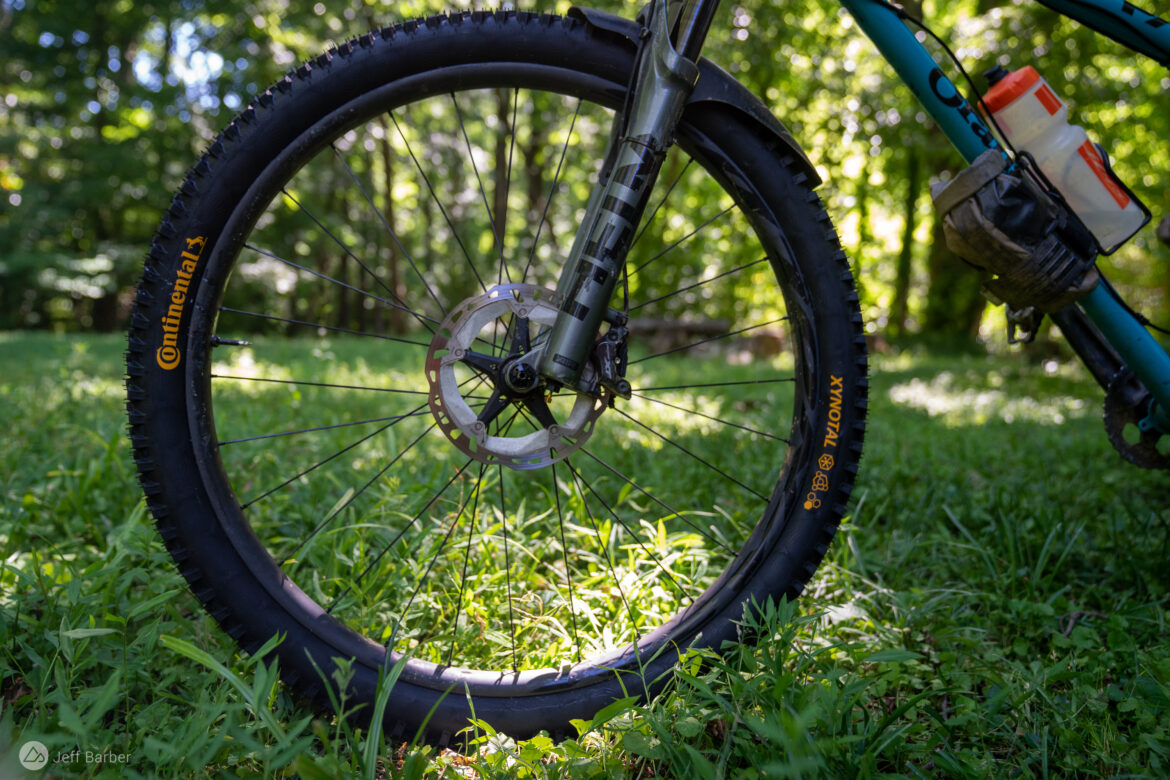
As a front tire the Continental Xynotal navigates hardpack with ease. Then again, pretty much any mountain bike tire can handle hardpack just fine, some are just faster than others. Thanks to the ramped knobs the Xynotal does feel like a fast roller which is welcome when riding hardpack, rocky slabs, and the occasional pavement traverse. For a trail tire, 1080g isn’t light but I found the weight isn’t all that noticeable and doesn’t seem to slow it down as much as I thought it would. The tire spins up to speed from a stop with minimal effort.
The Xynotal has good braking grip on steep and tacky slopes with the front end weighted down. I rarely if ever lost braking traction, though that’s mostly to be expected of a front tire. Continental offers a version of the Xynotal with a softer, grippier rubber compound that promises even better grip for seriously steep trails.
I found the Xynotal’s cornering performance to be average. Transitioning between the center knobs and side knobs can be abrupt, though once on the side knobs the Xynotal holds its line well.
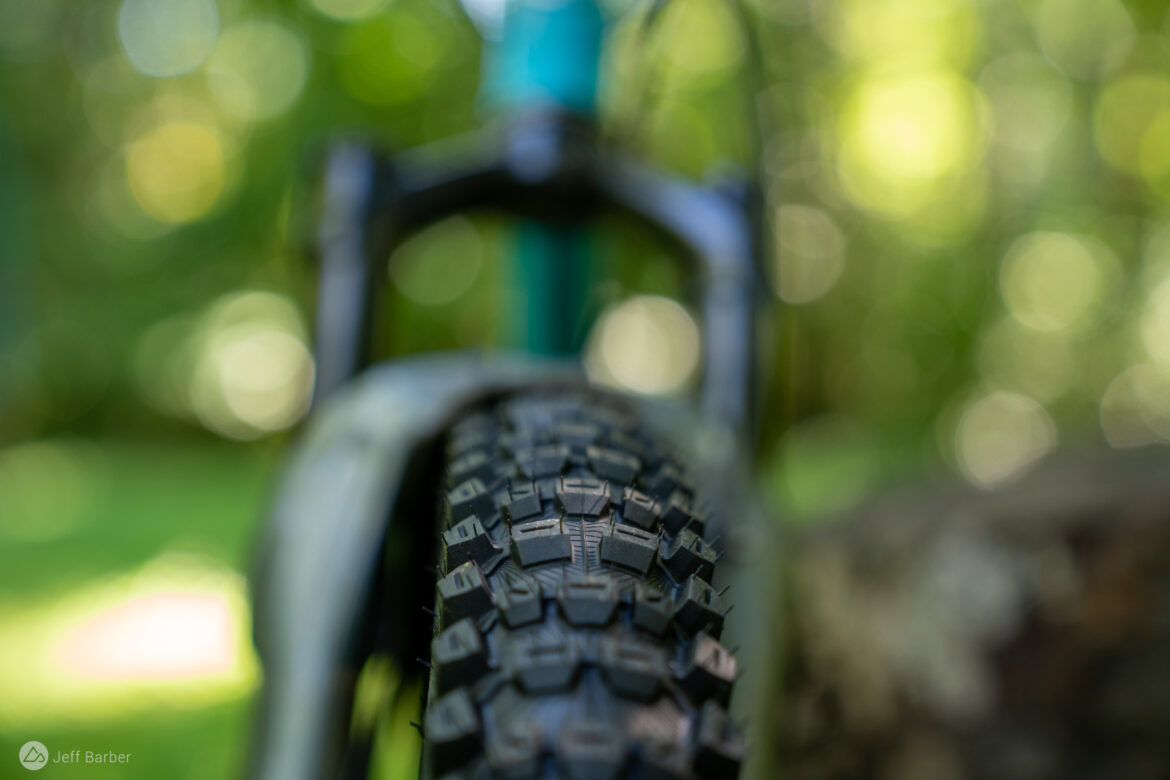
When it comes to off-label use, the Continental Xynotal still holds its own. As much as I would love to swap my tires regularly based on conditions, that’s not really practical, and I ended up riding in some greasy and muddy conditions on this “hardpack” tire. The result: a little bit of packing between the knobs but otherwise, the Xynotal worked just fine.
I like the volume of the Xynotal and despite going with the light-duty 60tpi trail casing I didn’t experience a single puncture, tear, or burp over months of riding at pressures ranging from 12-20psi. If I were running a pair of Xynotals I’d probably opt for the enduro casing in the rear for insurance against pinch flats.
Pros and cons of the Continental Xynotal tire
Pros
- Good shape and volume
- Easy to mount and no issues with punctures or burps
- Tall knobs and soft rubber offer good grip
Cons
- Average cornering transitions
- Hardpack intent is limiting
Bottom Line
The Contiental Xynotal isn’t Viagra for your bike; it’s more like good old reliable Tylenol.
- Price: $52-100
- Buy from JensonUSA and other online retailers.






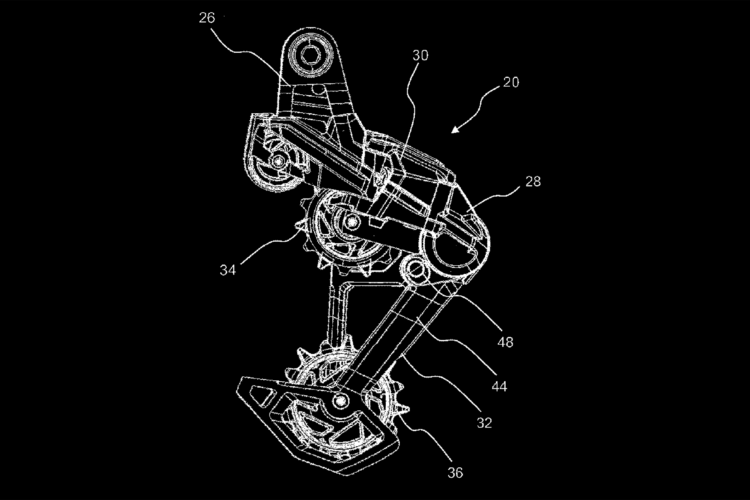



0 Comments